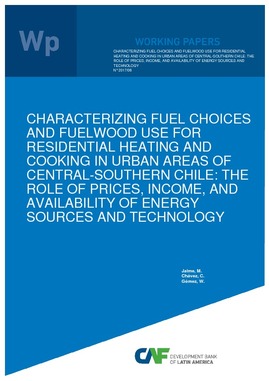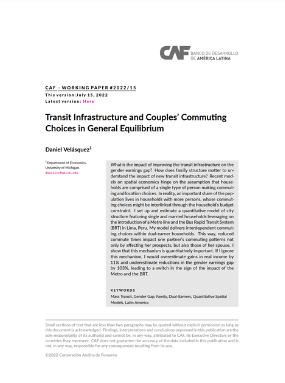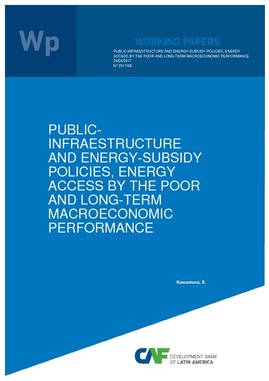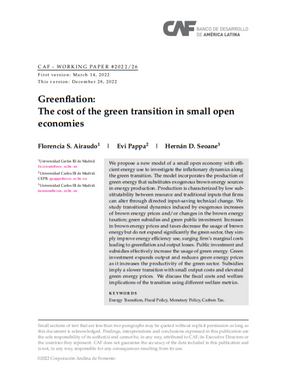Characterizing Fuel Choices and Fuelwood Use for Residential Heating and Cooking in Urban Areas of Central-Southern Chile: the Role of Prices, Income, and the Availability of Energy Sources and Technology
Abstract
This paper analyzes empirically the determinants of fuel choices and intensity of fuelwood use for residential heating and cooking in central-southern Chile. By using information from a sample of 2,761 households in nine urban areas, we first investigate households’ choices of the main fuel used for heating by means of multinomial models. Then we examine the intensity of fuelwood use through fractional probit models; these models allow analyzing interdependence of fuel use by households while taking account of households’ individual heterogeneity. Results indicate that households’ fuel choices are mainly driven by monetary incentives such as income and fuel prices. In contrast, while there is a component of fuelwood use that cannot be influenced by energy policies such as meteorological conditions across the country, there is a number of characteristics that influence the share households’ energy production that is generated by fuelwood. Factors range from socioeconomic characteristics to households’ perceptions regarding the link between air pollution and use of fuelwood in the county of residence. The knowledge of these factors brings an opportunity for the design of future policy interventions aimed at incentivizing the adoption of cleaner devices.
Subject
Country / Region
Date
2017-04-24Cite this publication
Belongs to collection
Author
Jaime, MónicaChávez, Carlos
Gómez, Walter
Items Relacionados
Transit Infrastructure and Couples’ Commuting Choices in General Equilibrium
What is the impact of improving the transit infrastructure on the gender earnings gap? How does family structure matter to un‐derstand the impact of new ...
Public-infraestructure and energy-subsidy policies, energy access by the poor and long-term macroeconomic performance
This paper presents the main set-up and long-run results from a simple deterministic version of a dynamic stochastic general equilibrium model of a small ...
Greenflation: The cost of the green transition in small open economies
We propose a new model of a small open economy with efficient energy use to investigate the inflationary dynamics along the green transition. The model ...






